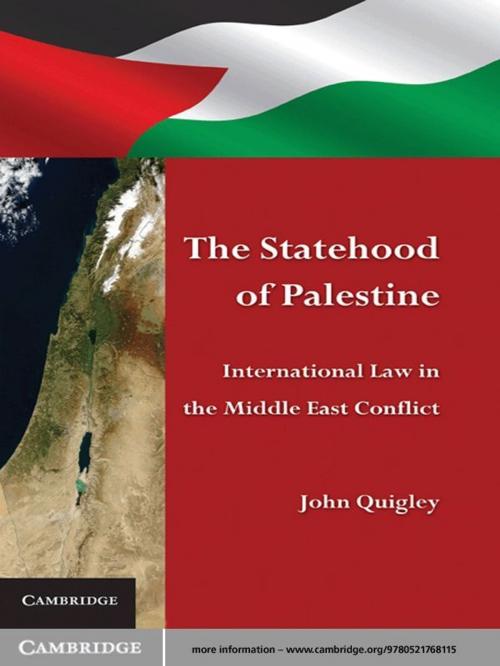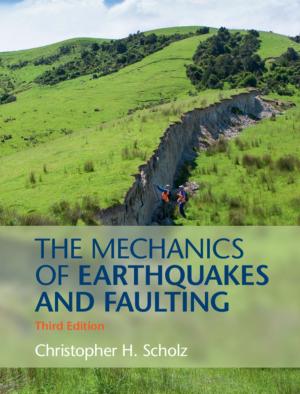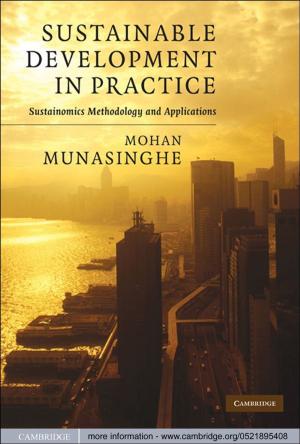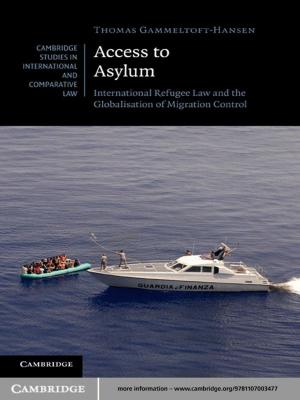The Statehood of Palestine
International Law in the Middle East Conflict
Nonfiction, Reference & Language, Law, International, History| Author: | John Quigley | ISBN: | 9781139035941 |
| Publisher: | Cambridge University Press | Publication: | September 6, 2010 |
| Imprint: | Cambridge University Press | Language: | English |
| Author: | John Quigley |
| ISBN: | 9781139035941 |
| Publisher: | Cambridge University Press |
| Publication: | September 6, 2010 |
| Imprint: | Cambridge University Press |
| Language: | English |
Palestine as a territorial entity has experienced a curious history. Until World War I, Palestine was part of the sprawling Ottoman Empire. After the war, Palestine came under the administration of Great Britain by an arrangement with the League of Nations. In 1948 Israel established itself in part of Palestine's territory, and Egypt and Jordan assumed administration of the remainder. By 1967 Israel took control of the sectors administered by Egypt and Jordan and by 1988 Palestine reasserted itself as a state. Recent years saw the international community acknowledging Palestinian statehood as it promotes the goal of two independent states, Israel and Palestine, co-existing peacefully. This book draws on evidence from the 1924 League of Nations mandate to suggest that Palestine was constituted as a state at that time. Palestine remained a state after 1948, even as its territory underwent permutation, and this book provides a detailed account of how Palestine has been recognized until the present day.
Palestine as a territorial entity has experienced a curious history. Until World War I, Palestine was part of the sprawling Ottoman Empire. After the war, Palestine came under the administration of Great Britain by an arrangement with the League of Nations. In 1948 Israel established itself in part of Palestine's territory, and Egypt and Jordan assumed administration of the remainder. By 1967 Israel took control of the sectors administered by Egypt and Jordan and by 1988 Palestine reasserted itself as a state. Recent years saw the international community acknowledging Palestinian statehood as it promotes the goal of two independent states, Israel and Palestine, co-existing peacefully. This book draws on evidence from the 1924 League of Nations mandate to suggest that Palestine was constituted as a state at that time. Palestine remained a state after 1948, even as its territory underwent permutation, and this book provides a detailed account of how Palestine has been recognized until the present day.















